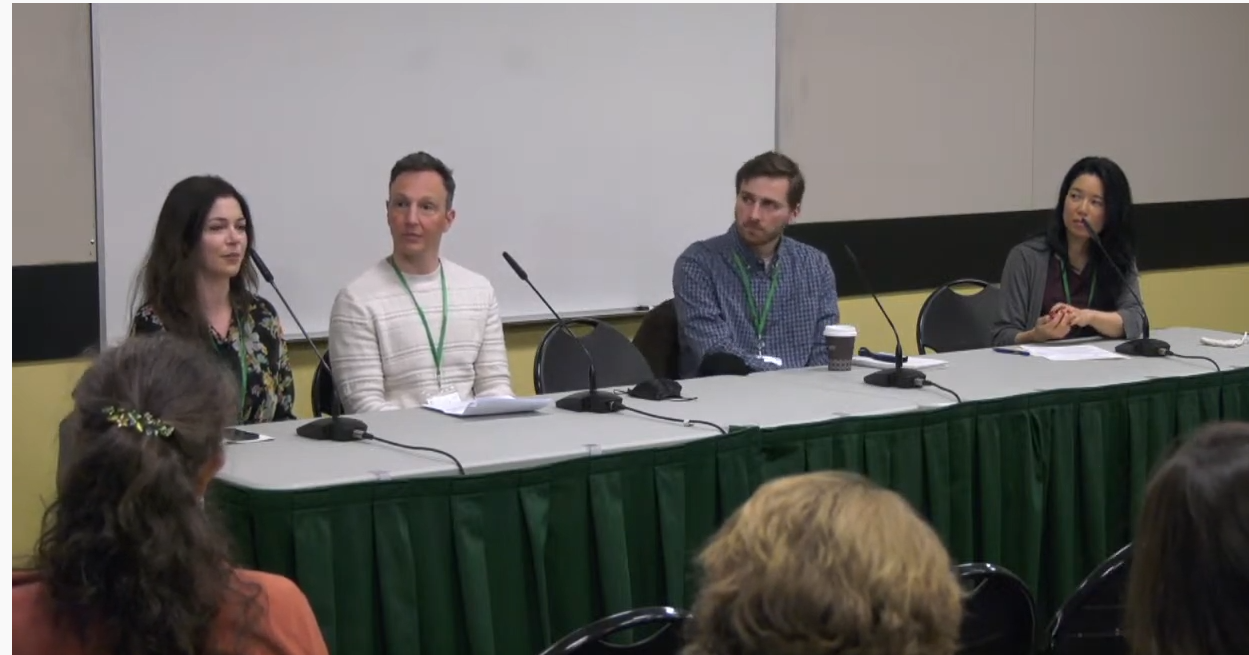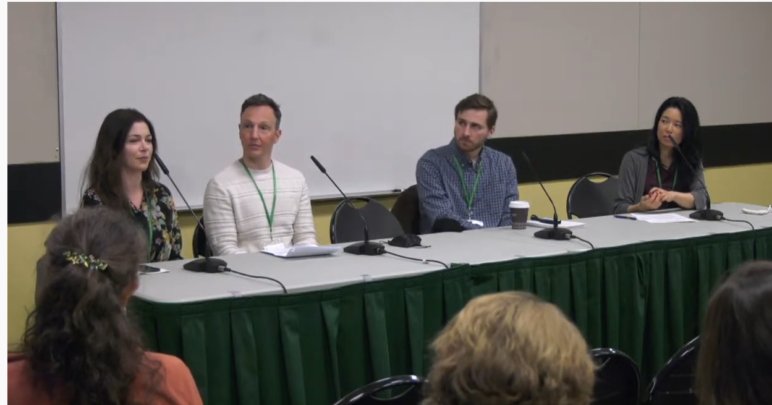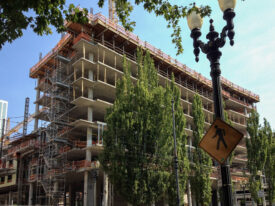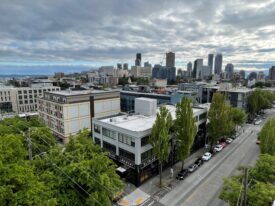The conversation shared below was part of the YIMBYtown 2022 conference, cohosted by Sightline Institute and Portland: Neighbors Welcome.*
“What is the first word that comes to mind when you hear the words ‘zoning reform’?,” Sightline’s Jeannette Lee asked panelists who develop and promote affordable housing. Their answers:
- Julia Metz of Catholic Charities of Oregon: “Opportunity”
- Paul Del Vecchio, of Portland-based Ethos Development: “Possibility”
- Preston Korst, Habitat for Humanity (Portland Region): “Fear”
YIMBYs talk frequently about the benefits that zoning reform can have for increasing the supply of new market-rate housing, but affordable housing providers are also greatly impacted by municipal and statewide changes to housing policy, too.
This panel interviews three housing providers—two affordable housing providers and one market-rate developer—about how Portland’s and Oregon’s zoning reforms will change the housing they build. They discuss how to further collaborate with abundant housing advocates to maximize the number of homes they can provide to those in need. Jeannette Lee from Sightline Institute moderated the discussion.
- Julia Metz of Catholic Charities of Oregon discusses the complexities of financing an affordable housing project.
- Paul Del Vecchio of Ethos Development describes how streamlining the permitting process could speed housing development.
- Preston Korst of Habitat for Humanity (Portland Region) talks about recent statewide housing reforms his organization has supported.
Related:
In Portland, Oregon, the paths to homeownership are multiplying | Dwell Magazine, June 2022
Coming soon to Portland: More townhomes, six-plexes, and other high-density housing | The Oregonian, June 3, 2022
*YIMBYtown 2022 occurred April 11–13 in Portland, Oregon, the fourth annual gathering (after some COVID delays) of “Yes in My Back Yard” (YIMBY) community leaders, organizers, planners, policymakers, educators, and housing providers eager to share resources and strategies for building more affordable, sustainable, and equitable communities.









